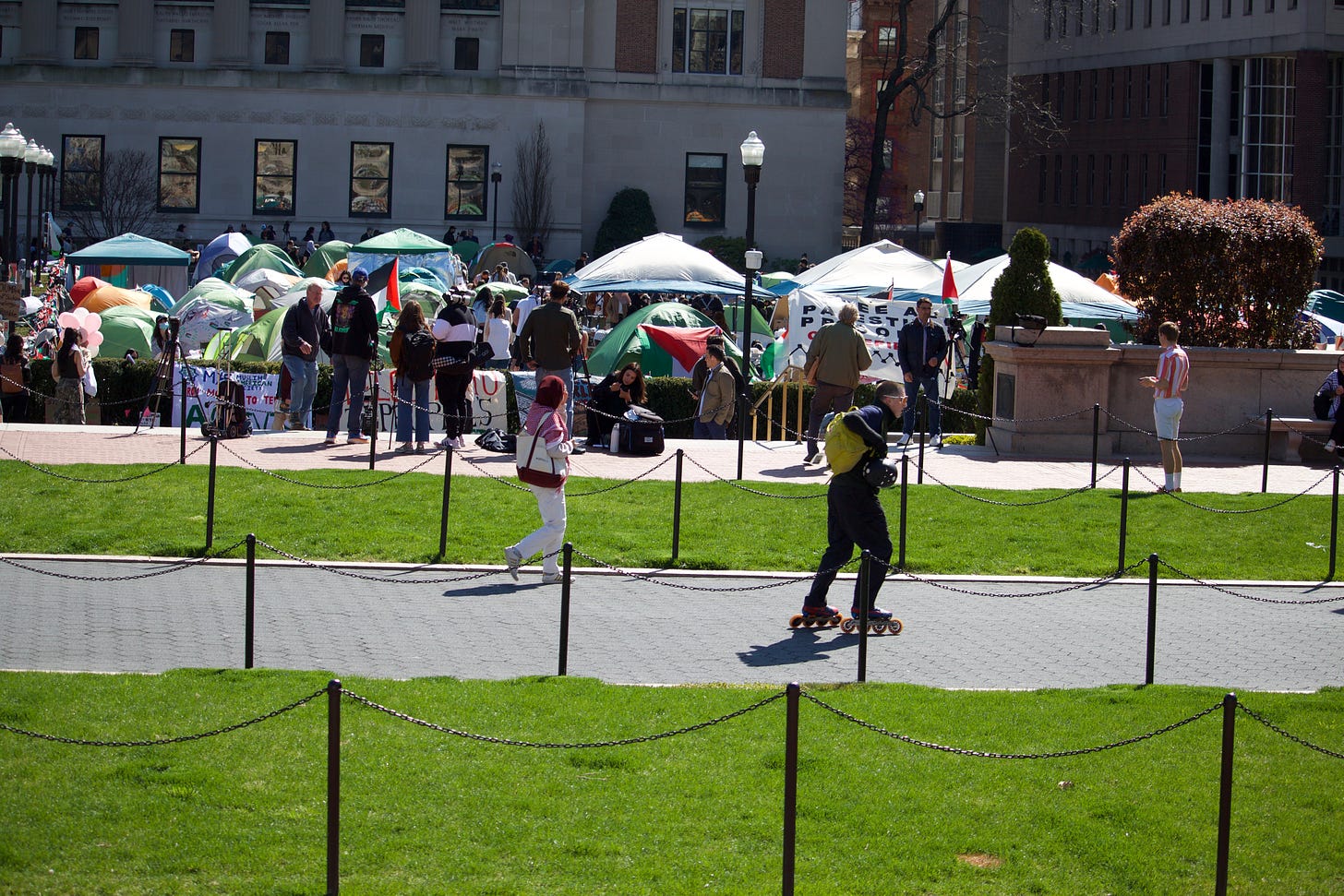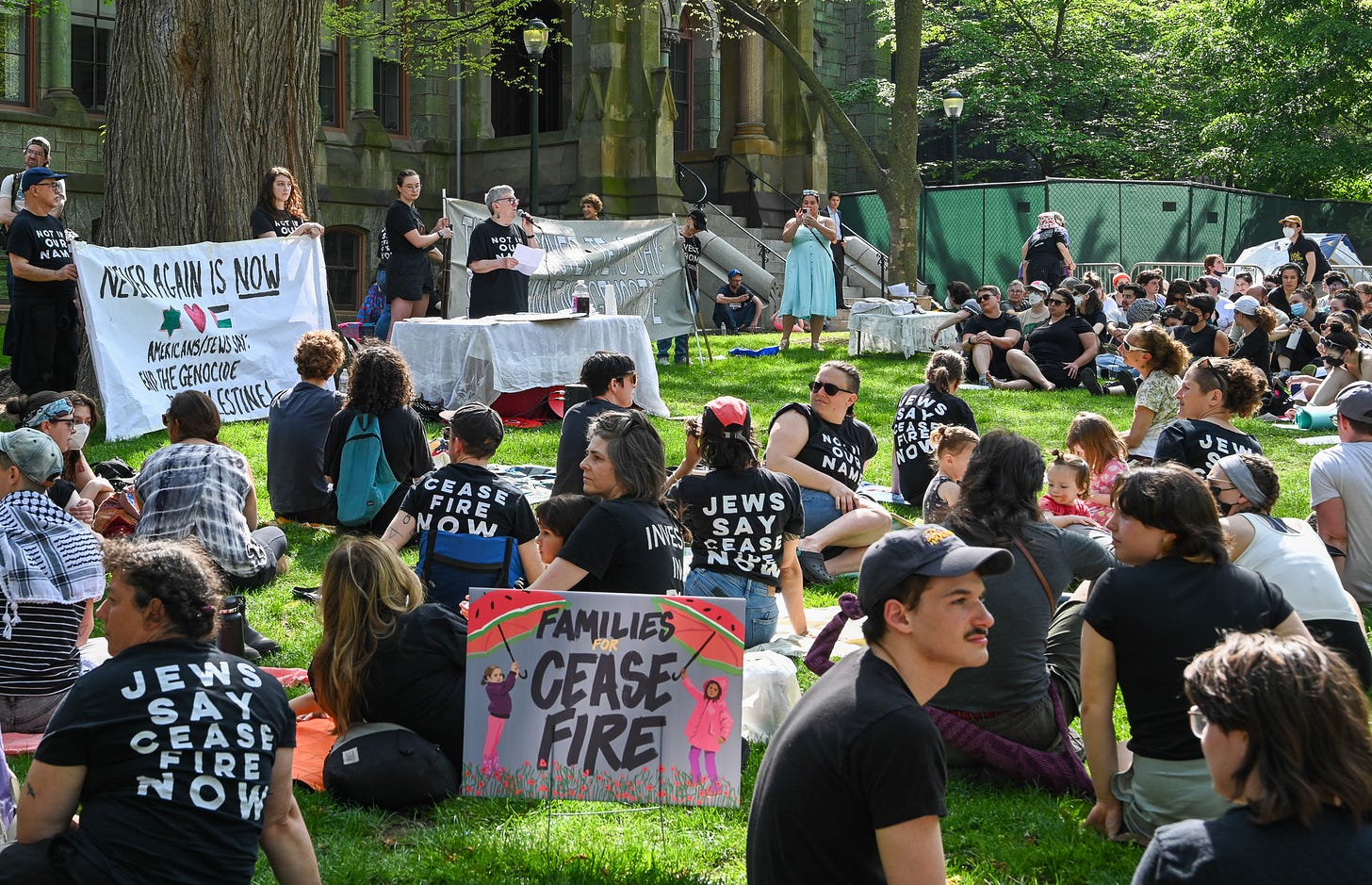Student Protests and the Specter of Repression
The Fight for Palestine on American Campuses
Throughout American history, the voices of students have served as a powerful catalyst for change. From the fight for Civil Rights to the passionate opposition to the Vietnam War, students have consistently been at the forefront, challenging social and political injustices. Today, in 2024, a new wave is surging across American universities, fueled by the ongoing Israeli War and the plight of Palestinians in Gaza. Their actions are shaking the foundations of a U.S. government unwavering in its support of Israel – a stance rooted in decades of imperialist maneuvering and the influence of powerful domestic lobbies.

Columbia University became the epicenter of this movement when a pro-Palestine solidarity encampment was established on its campus. Suddenly those hallowed halls echoed with words like ‘Apartheid', ‘Occupation' and ‘Genocide’ – terms not usually found in your alumni donation brochures. These students' voices parallel the global demand for Palestinian rights and an end to what they condemn as US complicity; especially with Israel facing accusations of carrying out disproportionate attacks, indiscriminate targeting, mass destruction of civilian infrastructure, blocking aid shipments, and of collective punishment.
Academic institutions, intended to be spaces for critical thinking, often become instruments of social control. Universities perpetuate certain ideologies while obscuring the failures of the past and present. The current wave of student activism directly confronts this dynamic. This student movement is a rude awakening – a giant middle finger to the idea that history is written solely by the victors. It wrestles with the insidious way historical narratives around the Israeli-Palestinian conflict are framed – an approach often favoring the Israeli viewpoint and obscuring Palestinian experiences of dispossession and occupation.
Of course, nothing says 'democracy' like panicking over a bunch of kids with megaphones as universities crack down on protests. The First Amendment, enshrining freedom of speech and assembly, appears under threat. Freedom of speech, is not just for frat parties and bad poetry slams. These students have every right to challenge the status quo, voice dissent and oppose government policies.

Student arrests at universities like Princeton have become commonplace. Meanwhile, Columbia's president is acting more like a warden than an educator. Accusations of anti-Semitism flew thick and fast. Authorities, both within universities and beyond, wield this as a weapon to silence pro-Palestine voices. This tactic has a chilling history, designed to deflect valid human rights concerns – It's the intellectual equivalent of a toddler plugging their ears and yelling "La la la, can't hear you!" A desperate attempt to silence debate and a gross insult to those fighting actual anti-Semitism.
Today, the struggle for Palestinian liberation isn't fought solely on physical battlegrounds, but within the hearts and minds of America's youth. This current activism draws deliberate parallels to previous fights – South African apartheid, U.S. involvement in Vietnam, and its own Civil Rights Movement. It reminds us that struggles for justice, however protracted, have the power to bend the course of history.
This wave of activism is a reminder that the Palestinian struggle isn't just happening 'over there.' It's about complicity, about whose side your government chooses, It's a battle of narratives, a test of whether America actually lives up to its ideals. Will these student voices fizzle out, or will they be the ones writing the next chapter?



